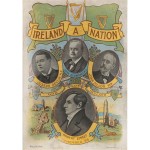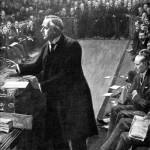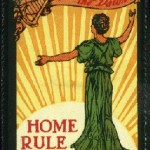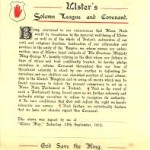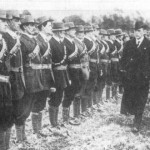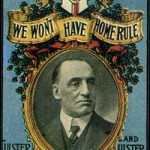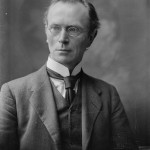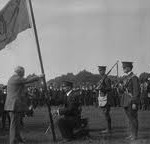Today in History: 11th April
Introduction of the 3rd Home Rule Bill for Ireland (1912)
House of Commons
- ‘Ireland A Nation’: Home Rule Campaign
- Herbert Asquith PM of Great Britain
- Home Rule Poster
Prime Minister Herbert Asquith
The introduction of the 3rd Home Rule Bill for Ireland would be the catalyst for the most turbulent period in Irish & Anglo-Irish history in modern times. With the passing of the Parliament Act 1911, the House of Lords which had long safe-guarded the integrity of the Empire, vetoing two previous Home Rule Bills in 1886 & 1893, now lost its veto power with only a ‘delay’ mechanism to slow down the implementation of legislation passed in the House of Commons.
The 3rd Home Rule Bill would eventually become law in 1914, titled the ‘Government of Ireland Act (1914), effectively granting Home Rule to Ireland, but crucially shelving or delaying its implementation until after the Great War (1st World War).
The Rise of Extremism: ‘Home Rule Crisis’
With the prospect of Home Rule being passed in Westminster, Unionists in the North of Ireland prepared for the worst. The Ulster Solemn League & Covenant was signed by over 200,000 men the following year in September 1912 and the Ulster Volunteer Force (UVF) was formed to use “any means necessary” to prevent the “present conspiracy to introduce Home Rule to Ireland”.
With this, the Irish Nationalist Volunteer Force formed after Eoin MacNeill suggested that Irish Nationalists form their own standing volunteer force to ensure Home Rule was implemented. The die was cast in Ireland; Britain’s attempt to resolve a centuries-old interference in Ireland set both communities, Nationalist & Unionist, on a collision course. A split occurred in the Irish National Volunteers, with some 11,000 of the more radical members moving to a more extreme position, committing themselves to complete separation from Britain. These ‘Sinn Féin Volunteers’, along with James Connolly’s Irish Citizen Army, would make up the vast majority of ‘Rebels’ in the 1916 Easter Rising in Dublin.
- Carson signs the Ulster Covenant (1912)
- Solemn League & Covenant (1912)
- Carson & UVF
- Anti-Home Rule Poster
- Eoin MacNeill
- Redmond & Irish National Volunteers

